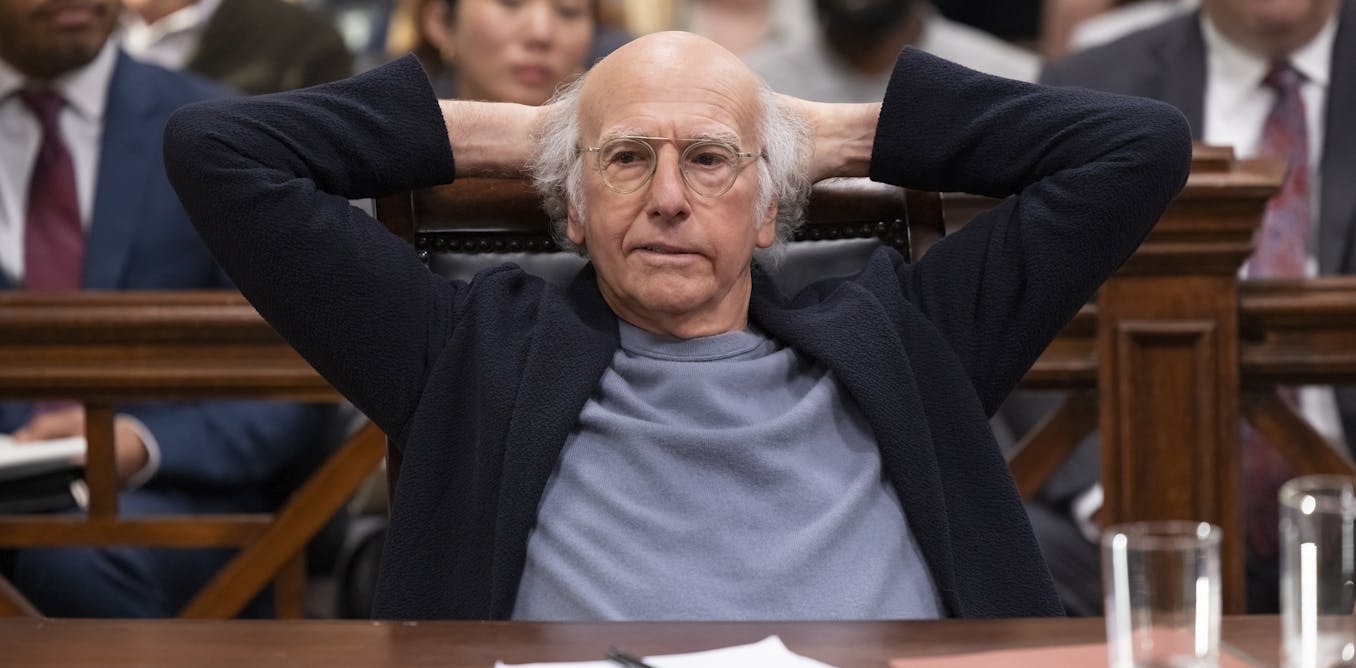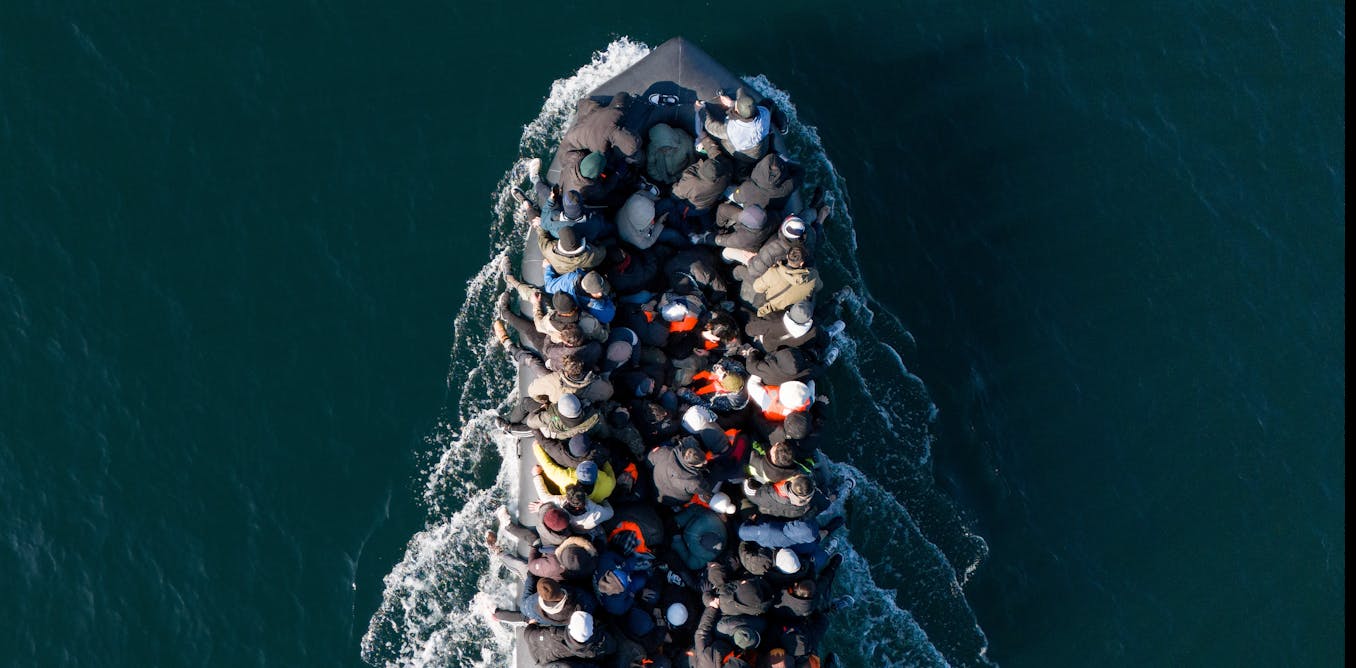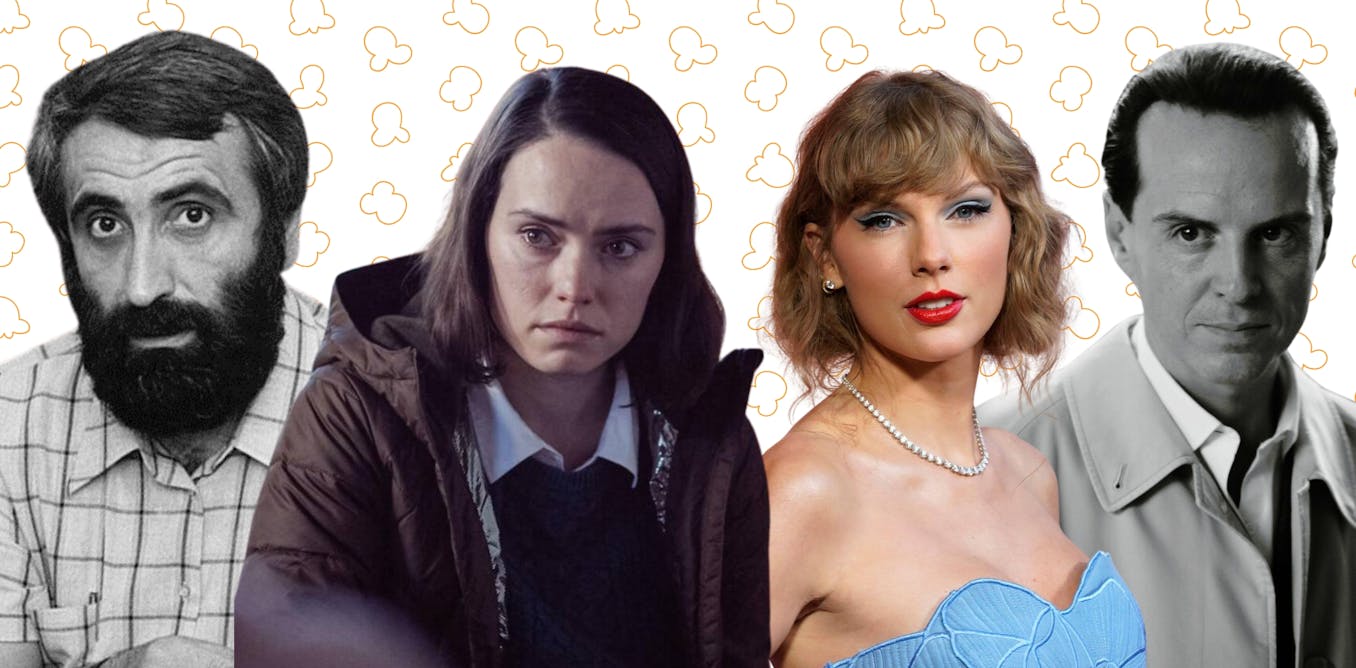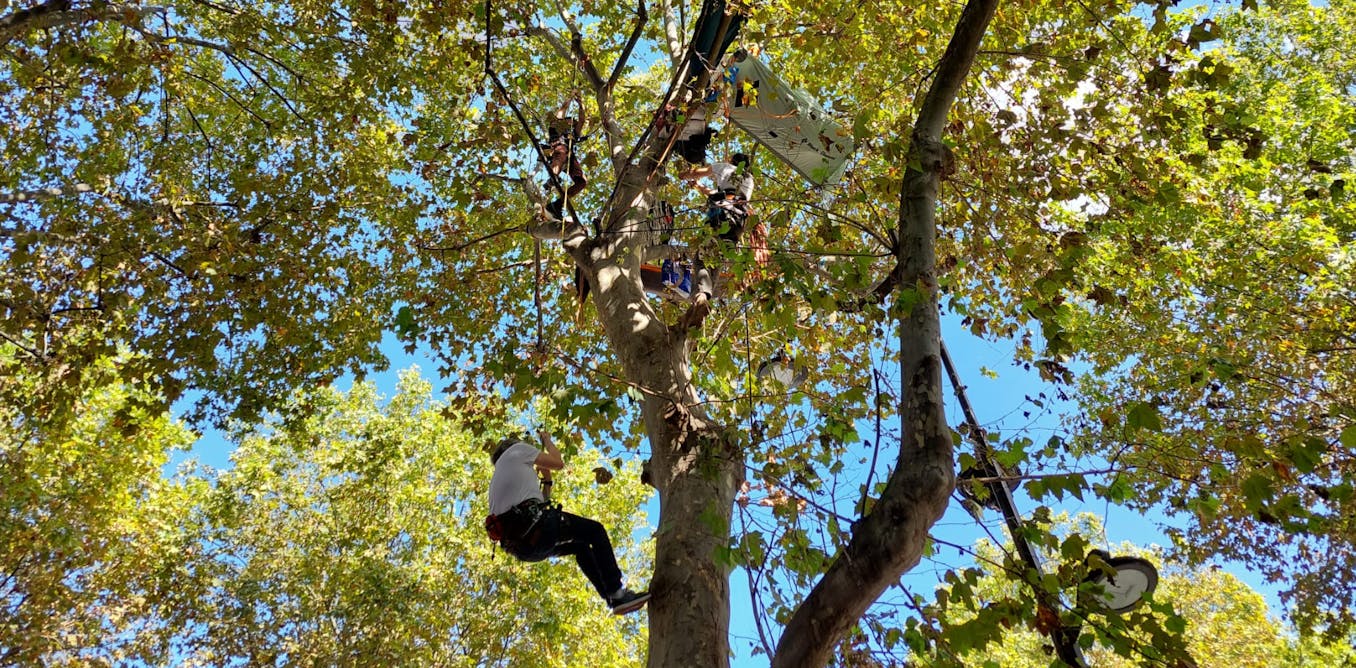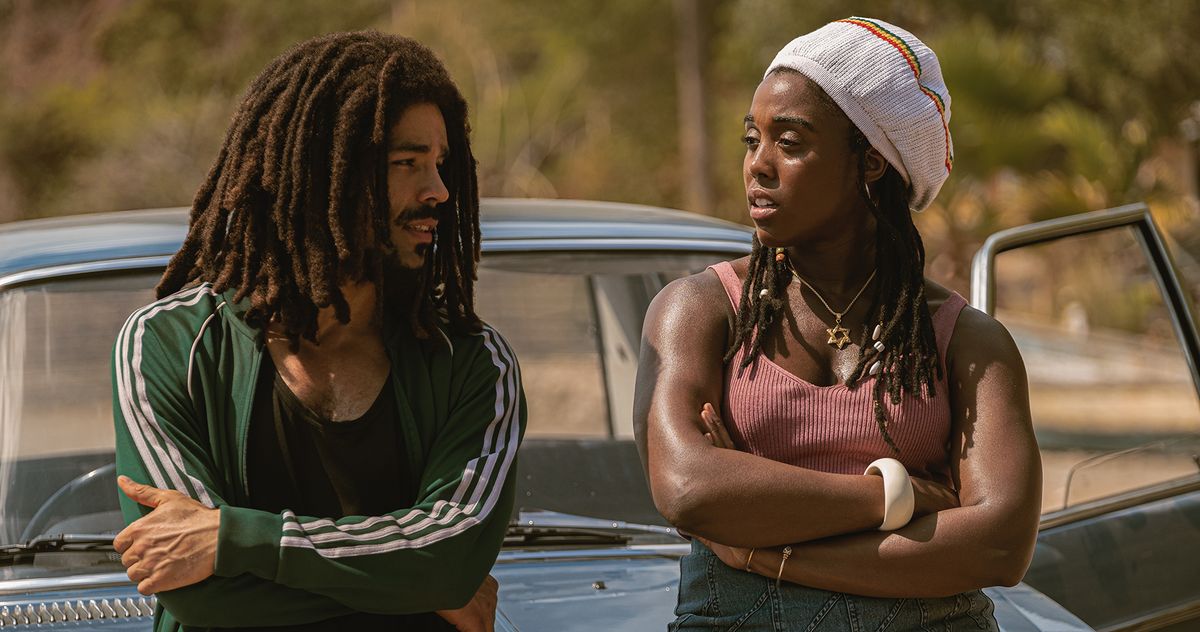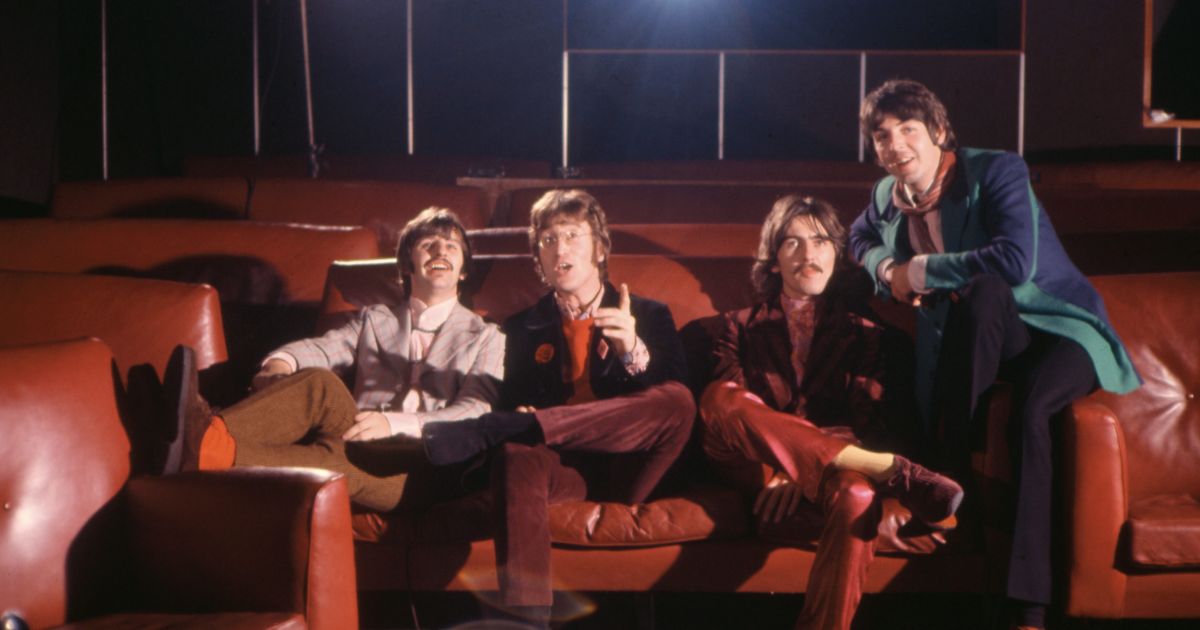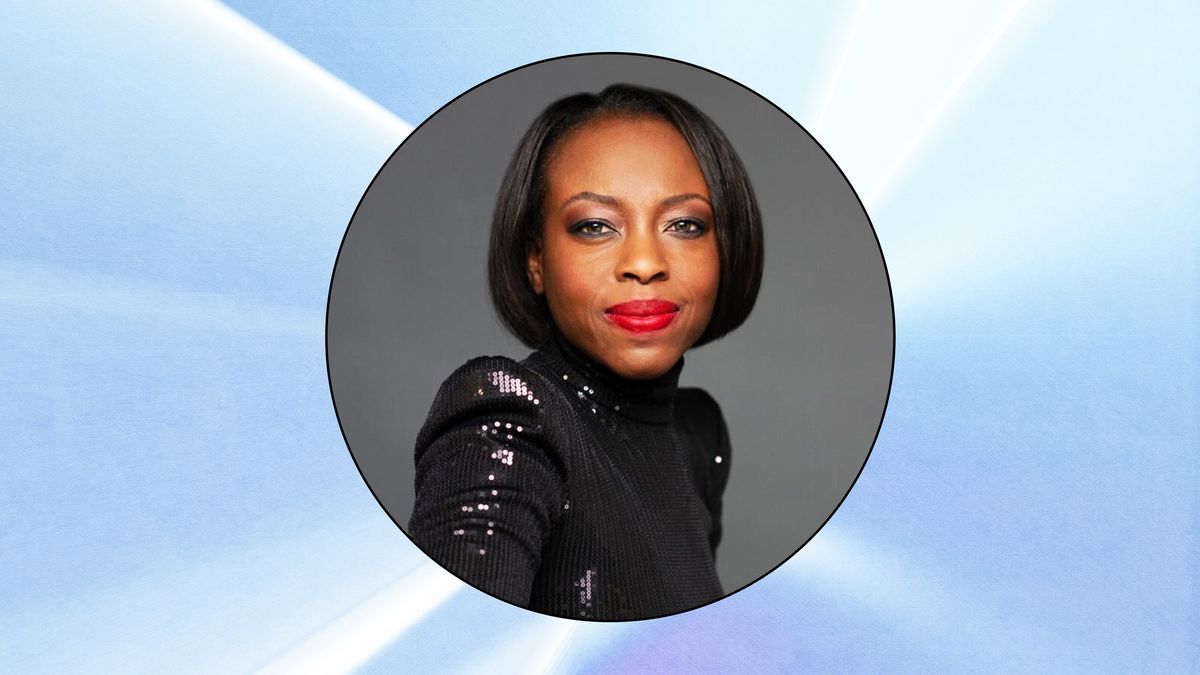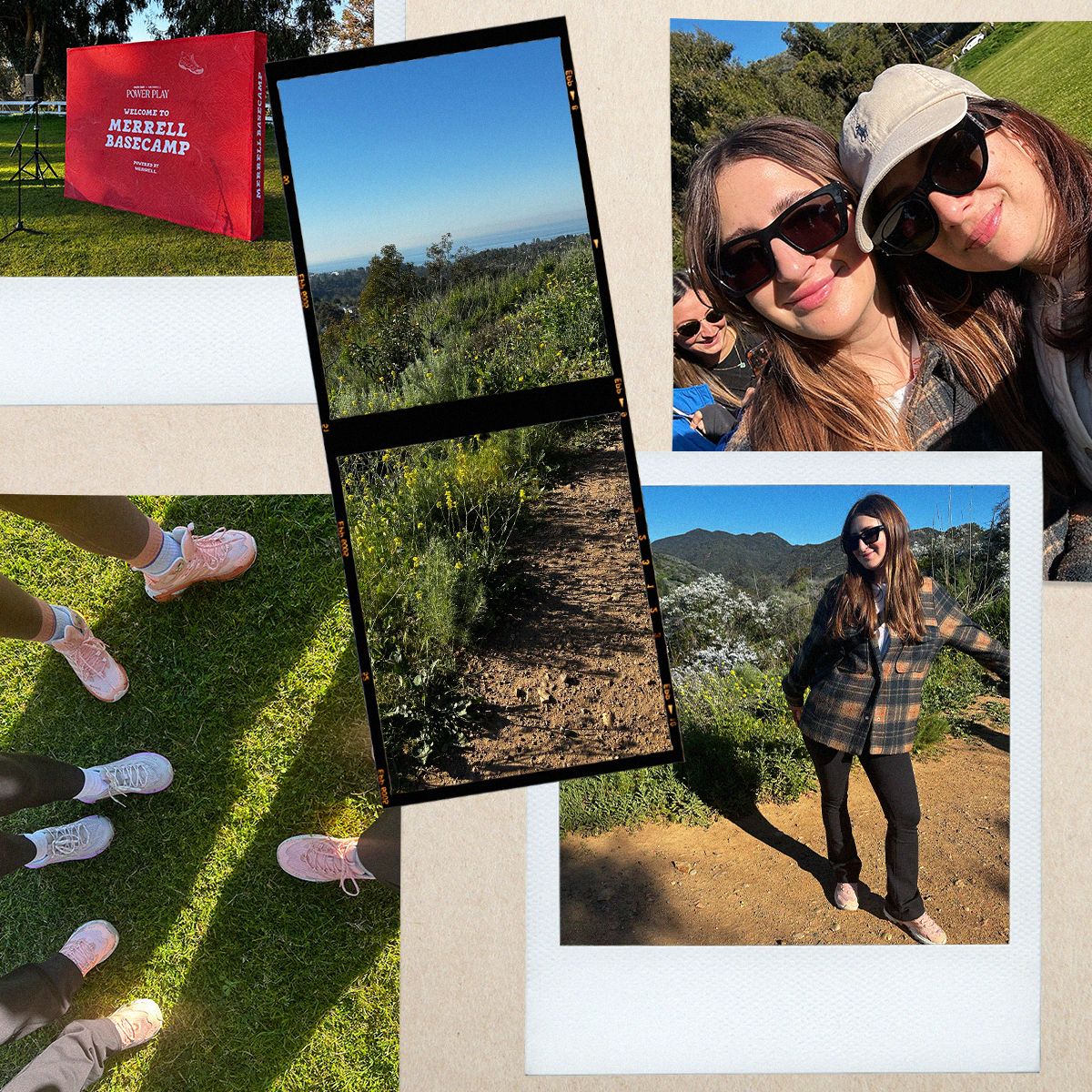
Roland Orzabal on Tears for Fears’ Tipping Point
It makes perfect aesthetic sense that today, at a seasoned 60, Tears For Fears anchor Roland Orzabal has the long silvery locks and scholarly salt-and-pepper beard of a majestic, Gandalf-level wizard—in the coolest “None shall pass!” way, of course. Because he’s already been walking, talking and making thoughtful music like one for over four decades now, a skill he’s honed to magical perfection on The Tipping Point, he and co-founder Curt Smith’s zen-like new album, their first together in nearly 17 years. After all, the duo broke big back in 1985 via “Shout,” their arcane #1 Billboard hit single that was a protest anthem couched in the writings of the late psychotherapist Dr. Arthur Janov, and his howl-out-your-inner-pain technique Orzabal first discovered at 17 in his book The Primal Scream. Coupled with its previous heady, swirling single “Everybody Wants to Rule the World,” “Shout” pushed its parent album—the band’s sophomore outing Songs From the Big Chair—to the top of the charts, as well; the musicians and co-vocalists had initially bonded in 1981 over their turbulent childhoods in the conversely serene and scenic English city of Bath.
By 1991, the team had stopped making music together, although Orzabal continued on with the TFF moniker, until the band reconvened in 2000, leading to its aptly titled Everybody Loves a Happy Ending comeback in 2004 and now its decade-in-the-making follow-up The Tipping Point, a seventh career set that again raced straight to the top of the Billboard countdown upon its February release. The music is undiminished and every bit as cascading and velvet-textured as it was in the band’s ’80s heyday, revolving around Smith’s pulse-thumping bass and Orzabal’s ricocheting bolts of electric guitar, all enveloped in a cloudy cloak of simpatico synthesizers (played by both). Orzabal wastes no time waxing philosophical, and in the opening track “No Small Thing,” foresees a time “When I’m 40 years older / When I’m wrinkled and wise.” It’s followed by the rock-tumbling title track, which wonders, Poe-like, “Who’s that ghost knocking at my door?” He then spends the rest of the album considering the metaphysical answer—if it’s not the ominous raven, is it “My Demons”? Will there be “Rivers of Mercy,” that possibly signal the “End of Night”? And—disguised as a coliseum-rocking anthem—is there a “Master Plan” that makes sense of it all? “If my soul be damned, it’s some part of the master plan,” the track surrenders, complemented by the bracing “Please Be Happy,” which directly addresses the 2017 death of Orzabal’s wife and mother of his two children, Caroline, who was battling both depression and alcoholism at the time. The tragedy occurred just as Tipping Point recording and tour plans were coalescing, and it cast a grim hex on those proceedings that he couldn’t break until 2020.
Orzabal now believes that magic can enter your existence at the most unexpected times. Like when he and the TFF tour band and crew were all sharing an evening meal in a dimly lit restaurant and his casual gaze—while everyone was paying the tab and leaving—happened to fall on Emily Rath, a chef, writer and photographer who also worked at the eatery. She wasn’t scheduled that night, but she glanced back at the musician, although she didn’t recognize him at all. “I saw Emily, and my brain kind of went into a strange free-fall, and I said to myself, ‘That’s my wife,’” recalls Orzabal, then a widower who was not pursuing any new relationships. “Which is a very strange thing, because I’ve been traveling around the world for decades and that’s never happened to me before. And so it might have ended right there, but Emily had this strange feeling that she should speak to me. She’d listened to Tears for Fears music while she was in college, but she didn’ know whether I was a drummer or a roadie, but she walked to me and said, ‘What do you think of the food?’ Even though it was her day off.” He invited her to a concert, not certain that she would attend, and a friendship, then a romance blossomed, which even Covid couldn’t derail. After two lockdown-canceled weddings, the couple finally eloped quietly last year, then sealed the official deal with a full ceremony. How else to explain such a serendipitous set of events but magic, Orzabal posits. Now, at the height of his spell-casting TFF powers—and ahead of the band’s Tipping Point World Tour, which kicks off in Cincinnati tonight (May 20)—Orzabal spoke with Paste about how fans can stay equally upbeat in a doggedly downcast world.
<p>Paste: Spiritually and existentially, where, exactly, are you now, post-lockdown?</p> <p>Roland Orzabal: Hmmm …. where am I? I’m fascinated by the spiritual aspects of quantum mechanics and consciousness, and I’ve been doing a lot of reading on the near-death experience. So I guess I’m fascinated by non-material things, if you see what I mean. I don’t see things from the materialistic perspective at all, because it doesn’t take into account so many of life’s experiences that are consistent for us, essentially. It’s reductive and it’s ridiculous. For instance, if you are materialist or atheist, you have to then deny the existence of anyone having a near-death experience. You then have to say, “Well, no, that’s just the function of the human brain,” and you have to deny any experiences or any insights from mystics across the centuries. You have to deny any insights from Eastern philosophy and religion—you just have to deny it, and keep denying, denying, denying. That’s the only way it works. So I guess that I struggle with the concept of the Rational Materialist, like Richard Dawkins, and his books <i>The God Delusion</i> and <i>The Selfish Gene</i>. So that’s kind of where I am, and these things keep cropping up—they don’t go away. There’s just something fundamentally flawed with the animalistic side of who we are, and it’s very, very dangerous. </p> <p>Paste: And there’s something fundamentally with rich, old American white men telling a woman exactly what she can, and can’t do with her body.</p> <p>Orzabal: Yeah, exactly. But it’s been like that for a little while now, hasn’t it? And then the pandemic hasn’t really helped. </p> <p>Paste: Have you ever had a near-death experience yourself?</p> <p>Orzabal: No.</p> <p>Paste: Or a past-life regression?</p> <p>Orzabal: Yes, I have. But I’m not sure what I learned from it—I was under hypnosis for the whole thing.</p> <p>Paste: And it’s strange how horoscopes seem to have grown correspondingly vaguer, more pop-fluffy during the pandemic, like, “Something nice may—or may not—happen to you today. Tonight? Stay inside and vegetate.”</p> <p>Orzabal: Talking of which, one of the most amazing books I’ve read recently is called <i>Cosmos and Psyche: Intimations of a New World View</i> by Richard Tarnas. It’s a 500-page book about these astrological cycles, from Jupiter to Pluto, and how one particular cycle coincided, historically, with 9/11. And because this book was written five years ago, the latest similar juncture was, of course, in 2020, at the same time as Covid. So it was all very fascinating, and I really recommend that book—it’s not about Scientology. It’s about some deep astrology. </p> <p>Paste: You had already been through a tough time, with the passing of your wife Caroline in 2017. So you probably didn’t think it could get any darker when the pandemic hit, right? </p> <p>Orzabal: Well, I was a little bit surprised <i>and</i> annoyed then. There was a little supermarket by where we were living, and all of a sudden, there were security guards on the door, and people queueing. And I know it’s called social distancing, but they were still queuing, just to restrict the numbers [of customers] in the supermarket. And it was pre-mask mandate, so I didn’t take it as a good sign. So it felt a bit like a violation, and it felt like every time you’d go to the supermarket, you were going through security at an airport. And what was strange was, the security guards came from a different area, so that was another thing that made you a bit more defensive. But the first lockdown, Lockdown Number One, coincided with the most remarkable patch of weather we’d had in recent years, so lockdown on a few acres of tree-lined land and tennis courts wasn’t too bad. But I had no one to play tennis with, because you weren’t allowed to, which is, again, a rather ridiculous thing. But we got through it, and my son stayed with us, and we did a lot of cooking. And I was working on the album quite regularly, so it was fine. And I live mainly in England—I’ve come to associate L.A. with work. But my new wife is from Colorado, so we also spend time there, which I love.</p> <p>Paste: A question I simply have to ask: Have you seen the Netflix film <i>Don’t Look Up</i>?</p> <p>Orzabal: Yes. It’s brilliant, absolutely stunning. It is <i>so</i> good—I loved it. And it makes a justified point—there <i>is</i> no hiding place [from climate change]. There’s just no hiding place. </p> <p>Paste: And you hail from Bath, a British town that’s steeped in nature and aesthetics, all the way down to the water taste and odor of its historic Roman baths. It’s like a sensory playground there. Did it influence you as a kid? </p> <p>Orzabal: I don’t know. To me, for every Bath, there’s a Bristol. So there was quite a difference in the personality of Bath, which is mainly the second most-visited place in England, after Buckingham Palace. So it’s touristy, and there’s a kind of vanity that comes into the culture when you live in a beautiful place, so I think that inevitably affects its people. So the Bath bands were always pop bands, and there was always that kind of sense of, “We’re vain, and we want to seize our vanity.” Whereas, when you went to Bristol, it was more of a dirty, gritty, urban environment. I mean, you had Rip, Rig and Panic, punk bands like that coming out of Bristol, and you had The Pop Group, and then they evolved into incredible bands like Electric Guitars, and then they evolved even further into the huge success—and excess—of Massive Attack, which really was the point where Bristol stuck two fingers out to Bath and said, “Sorry, mate!” Plus there was Tricky and Portishead—all these bands that really were incredible.</p> <p>Paste: It’s interesting to note that in the Escher-intricate cover painting of <i>Tipping Point</i>, the people depicted <i>look</i> really busy, but they actually aren’t.</p> <p>Orzabal: Yes, that’s right. But that’s also kind of like life, isn’t it? Sometimes I just wonder why there’s not enough time in the day, you know? Because we’re always doing something, or we’re not doing something but we’re engaged in social media or we’re caught up in one thing or another that keeps us absolutely occupied.</p> <p>Paste: And the <i>Tipping Point</i> title is obviously from Malcolm Gladwell.</p> <p>Orzabal: Well, that was the book, yeah. And I’m not sure if the phrase had been long before then, but there are many similar phrases, like ‘the saturation point.’ But that’s not quite as easy to sing! But it is that point where things have been in limbo for so long, things have built up and built up until there has to be a change, a radical change, in order to accommodate and then dispel all of the energies.</p> <p>Paste: In the <i>Tipping Point</i> album opener, “No Small Thing,” you foresee a time “When I’m 40 years older / When I’m wrinkled and wise.” That’s, uh, a long way off ….</p> <p>Orzabal: Well, no, I mean, obviously that’s written from a young man’s perspective, although I could have said, “When I’m 20 years older,” using that spot of time. But I was just playing around, because it is the man and the younger man. Because I’m <i>already</i> 40 years older!</p> <p>Paste: If your current self could time-travel back and offer advice to your younger self, what would it be?</p> <p>Orzabal: Well, from a physical point of view, “Stop going out in the sun and wear some sunscreen. Stop drinking so much, Go see a dentist more regularly, buy shares”—there are so many different things. But it’s dangerous, because if I’d been able to go back and say, “Well, <i>this</i> is what’s going to happen, then there’s no point in living your life. Life has to be lived, step by step, or else you will entirely miss the point. It just has to unfold. It’s kind of like when I met Emily, when I first saw Emily. Is it serendipitous? Or is it your future self, tapping you on the shoulder and saying, “Pay attention! This is important!” Is it that? Do we have, already, a built-in sense of what’s going on? But still, we have to live it in a linear way, to gain any valid experience for what we may call a soul. But it doesn’t matter. What matters is what you conceive of and do with the experience. Or that’s what my understanding is at the moment.</p> <p>Paste: I’ve always believed that curiosity and a childlike sense of wonder are crucial to living a fulfilling life, as well. You seem to be maintaining both pretty well.</p> <p>Orzabal: Yeah, I do. I mean, I lost it for awhile, actually. </p> <p>Paste: You’ve said you believe you went mad after your wife’s death.</p> <p>Orzabal: Yeah. I had a breakdown, which was not unusual. But there were some strange things happening, and I got through it, after my second rehab. And it was at an incredible place in Loveland, Colorado, called Inner Peace, which I would recommend even if you don’t have a drug problem. It’s not judgmental—they analyze everything going on in your body, genetically, as well, because some people have a genetic predisposition to addiction. So they work that out, and then they fill you up with supplements of the things you’re not getting. That’s why a lot of people drink, just to get that into their systems. Plus they give you the most incredible food, but it’s a hypoglycemic diet, so it’s not giving you tons of sugar. And the coffee is decaf, but it tastes like real coffee so you don’t notice the difference. And that hypoglycemic diet that cuts back on your sugars? It’s absolutely stunning, and there’s a spiritual quality to all of it, too. Spiritual stuff that’s trying to increase the meaning in your life. And I just turned a corner during all that, and I went from being plagued by the past to being open to the future.</p> <p>Paste: Do you have any daily rituals that keep you focused, like meditation?</p> <p>Orzabal: No. Well, we exercise. We exercise like crazy. I have to keep training, because I’m such a big tennis fanatic.</p> <p>Paste: Have you got a personal favorite text, film or work of art that you can recommend to fans to help ground them, as well?</p> <p>Orzabal: Yeah, I do. There’s a guy called Russell Brand, and he’s got a podcast called <i>Under the Skin</i>, and I really recommend that. And also, if you need to calm your mind and step outside yourself, there’s a book called <i>The Untethered Soul</i> by Michael A. Singer, and you should keep it by your bed, because I’m not very good at meditating, but the way he writes is forcing you into a meditative state, a meditative attitude. So you can’t help but look into yourself, in search of a higher self. I’m reading it for the second time now, because it’s not one of those books where you get to the end and go, “Ah! Great! It’s finished!” No. No, it never ends.</p> <hr /> <p><i>Hear a 1983 Tears for Fears performance from the </i>Paste<i> archives below.</i>

